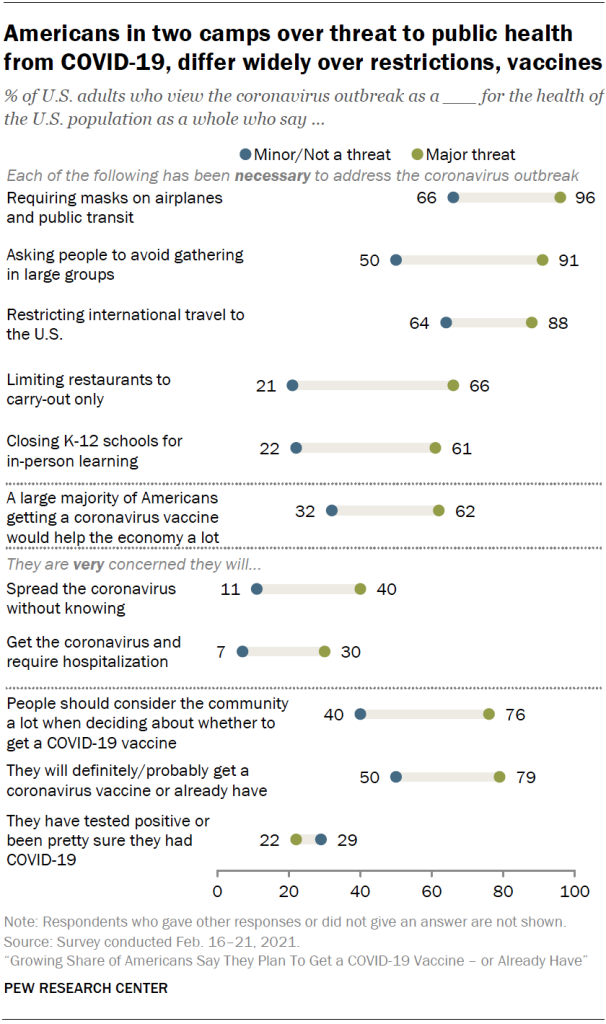After a succession of disappointing surveys, a new report on a February 16-21 Pew Research poll suggests that Americans are warming to the prospect of getting SARS-CoV-2 jabs this year.
The new report shows 69% of US adults plan to be inoculated or have already received at least one dose of a Covid-19 vaccine (19%). This is a nine-point increase since the November 2020 survey, a substantial rise for a three-month period.
One particularly reassuring sign is that the vaccine promotion efforts of Black physicians, nurses, scientists, community organizations, and Black churches are making headway among African Americans. Pew’s November survey indicated that only 43% of the US Black population were planning to roll up a sleeve when their turn comes, but now, 61% say that they either have been vaccinated or intend to do so. The report also noted that “Differences in intent to be vaccinated among Black, White, Hispanic or Asian adults are generally smaller now than they were three months ago.”
Older adults—with 86% saying they have had at least their first shot or plan to—are the biggest success story at this stage. Pew’s survey of Americans over age 65 found that 41% have had their shots or are awaiting their booster, and 45% expect to do so this year. With the vaccines circulating among the senior population, states are seeing a sharp drop in SARS-CoV-2 among the elderly and nursing home occupants.
A variety of factors—some easily understandable, others mystifying—ranging from political views to income, and even gender—seem to play into attitudes toward the Covid vaccine. People’s reasons for getting or refusing vaccines, Pew remarks, are “complex and interrelated. Center analyses find trust in the vaccine research and development process ties strongly to people’s vaccine attitudes and actions – vaccine intent is 75 points higher among those with high trust than low trust. Those who place a lot of emphasis on community health in the vaccination decision are 60 points more likely than those who give this no consideration to intend to get a vaccine. Habits and practices with the seasonal flu vaccine also closely tie to intent to get vaccinated (there’s a 39-point difference between those who get a flu shot yearly and those who rarely or never do).”
Perspectives on the Covid vaccines are also closely related to beliefs in the gravity of the crisis and in the efficacy or necessity of recommended public health measures. After asking respondents whether they considered the Covid-19 virus a serious threat, the Pew Report found that views on a wide range of Covid-related issues were predicated on a respondent’s assessment of the threat level. “These two groups [high-threat believers and low-threat believers] differ,” it stated, on everything “from personal concern about getting the disease to opinions about policies aimed at containing its spread.”

You can see the full Pew Research report here.
- CRNA Helped Save Martin Luther King’s Life After 1958 Stabbing - February 2, 2024
- Nurse of the Week: L&D Nurse Amie Page was Injured in Line of (Off)Duty - July 27, 2022
- Thanks to Vaccinations, This Week’s NY Polio Case is Not Front-Page News - July 22, 2022

